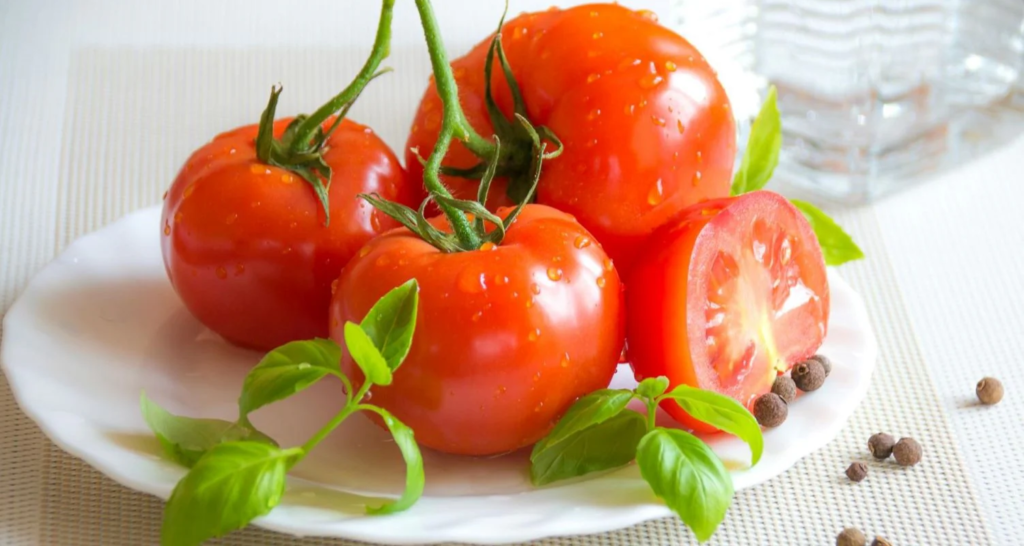What’s So Great About Them?
Tomatoes are loaded with a substance called lycopene. It gives them their bright red color and helps protect them from the ultraviolet rays of the sun. In much the same way, it can help protect your cells from damage. Tomatoes also have potassium, vitamins B and E, and other nutrients.

Immune System
Lycopene is an antioxidant — it fights molecules called free radicals that can damage your cells and affect your immune system. Because of that, foods high in lycopene, like tomatoes, may make you less likely to have lung, stomach, or prostate cancer. Some research shows they might help prevent the disease in the pancreas, colon, throat, mouth, breast, and cervix as well.
Heart
Lycopene also may help lower your levels of LDL, or “bad” cholesterol, as well as your blood pressure. And that may lower your chances of heart disease. Other nutrients in tomatoes, like vitamins B and E and antioxidants called flavonoids, may boost your heart health, too.
Eyes
Tomatoes have substances called lutein and zeaxanthin that may help protect your eyes from the blue light made by digital devices like smartphones and computers. They also may help keep your eyes from feeling tired and ease headaches from eyestrain. And some research shows they may even make you less likely to have a more serious form of the leading cause of blindness in the U.S.: age-related macular degeneration.
Lungs
Some studies show that tomatoes may be helpful for people who have asthma and may help prevent emphysema, a condition that slowly damages the air sacs in your lungs. That may be because lycopene, lutein, and zeaxanthin, among other antioxidants, fight the harmful substances in tobacco smoke, which is the leading cause of emphysema. Scientists are trying to learn more about those effects.
Blood Vessels
Getting more tomatoes into your diet may make you less likely to have a stroke, which is when blood flow gets cut off to a part of your brain. Studies suggest that they may ease inflammation, boost your immune system, lower your cholesterol levels, and keep your blood from clotting. All those things may help prevent strokes.
Oral Health
Studies have shown that lycopene may help with the gum diseases gingivitis and periodontitis in the same way it may help prevent cancer — by fighting free radicals. But eating lots of raw tomatoes can damage the enamel on your teeth — thanks to the high amount of acid — and brushing soon afterward can make that worse. It’s a good idea to wait at least 30 minutes before you brush.
Skin
You know hats and sunscreen can help shield you from the sun. Well, the lycopene in tomatoes may do something for that, too, possibly in the same way it protects tomatoes. It’s not a substitute for sunscreen, and you don’t put it on your skin. It helps, though, by working on your cells from the inside.
Source: Click Here


